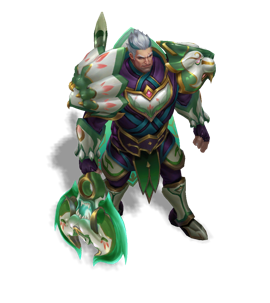Since its debut in 2009, League of Legends has grown into one of the most-played games on the planet. With fast-paced battles, 170 champions, and global esports tournaments watched by millions, it’s often described as a “competitive online game” or a “MOBA.” But many new or curious onlookers ask: Is League of Legends a strategy game?
The answer is yes—but not in the way traditional strategy games like StarCraft or Civilization are understood. League of Legends is a real-time, team-based strategy game wrapped in the mechanics of action and role-playing. Beneath its colorful visuals lies a deeply tactical experience that rewards foresight, coordination, and adaptability.
What Defines a Strategy Game?
To answer the question, we first need to define what “strategy” means in gaming. Strategy games typically involve:
- Planning ahead
- Resource management
- Decision-making under pressure
- Adapting to an opponent’s moves
League of Legends checks all these boxes—just in its own, hybridized format.

The Strategic Layers of League of Legends
Though matches unfold in real time with fast reactions, the foundation of League is built on strategy at multiple levels:
- Champion Select: Strategy begins before the match even starts. Teams must draft champions that work well together and counter the enemy composition. Picking a strong lane matchup or building a team comp with good engage or crowd control can determine the course of the game.
- Laning Phase: Players must manage minion waves, trade damage, control vision, and deny their opponents gold and experience—all while watching for jungle ganks. Every decision impacts team power later.
- Map Control: Warding, rotating for objectives, and understanding vision denial are crucial. Strategic teams control Dragons, Rift Heralds, and Barons—not just by force, but by timing and positioning.
- Macro Play: Knowing when to push, defend, group, or split-push is key. Games are often won not by kills, but by strategic decisions that lead to objectives and map pressure.
- Adaptation: Items can be tailored mid-game to counter specific threats. Builds and approaches evolve depending on how the match unfolds, making League feel like a living chessboard.
Micro vs. Macro: The Twin Pillars of Play
In League, success depends on a mix of micro (mechanical skill) and macro (strategic planning). A player might be a master at dodging skill shots or pulling off flashy combos, but without understanding how to rotate for an objective or read the map, they won’t climb very far.
This duality is what makes the game so enduring: it rewards both raw skill and thoughtful play.
Strategy in the Pro Scene
Watch any professional League of Legends match, and the strategic element becomes undeniable. Teams coordinate complex plays, bait opponents into traps, and plan around cooldowns and map timings with military precision. Draft phase alone can win or lose a match.
Analysts and casters frequently break down not just what happened—but why it happened. Timing, ward placement, lane assignments, and team composition are all part of a grand strategic dance.
Compared to Traditional Strategy Games
Unlike turn-based or top-down strategy games, League of Legends demands fast decision-making and constant engagement. But it shares the same DNA: resource control (gold and experience), positioning, map awareness, and predicting opponent behavior.
It’s more accessible in some ways, less forgiving in others—but undeniably strategic.
Final Verdict: Strategy at Its Core
So, is League of Legends a strategy game? Absolutely. It may wear the skin of a brawler or action game, but its soul is tactical. Every match is a test of planning, adaptation, and execution—both at the individual and team level.
Whether you’re a jungler calculating the next objective spawn or a support placing a game-winning ward, you’re engaging in strategy. And that’s what makes League of Legends not just a game of mechanics—but a game of minds.
Written by:
Christian


